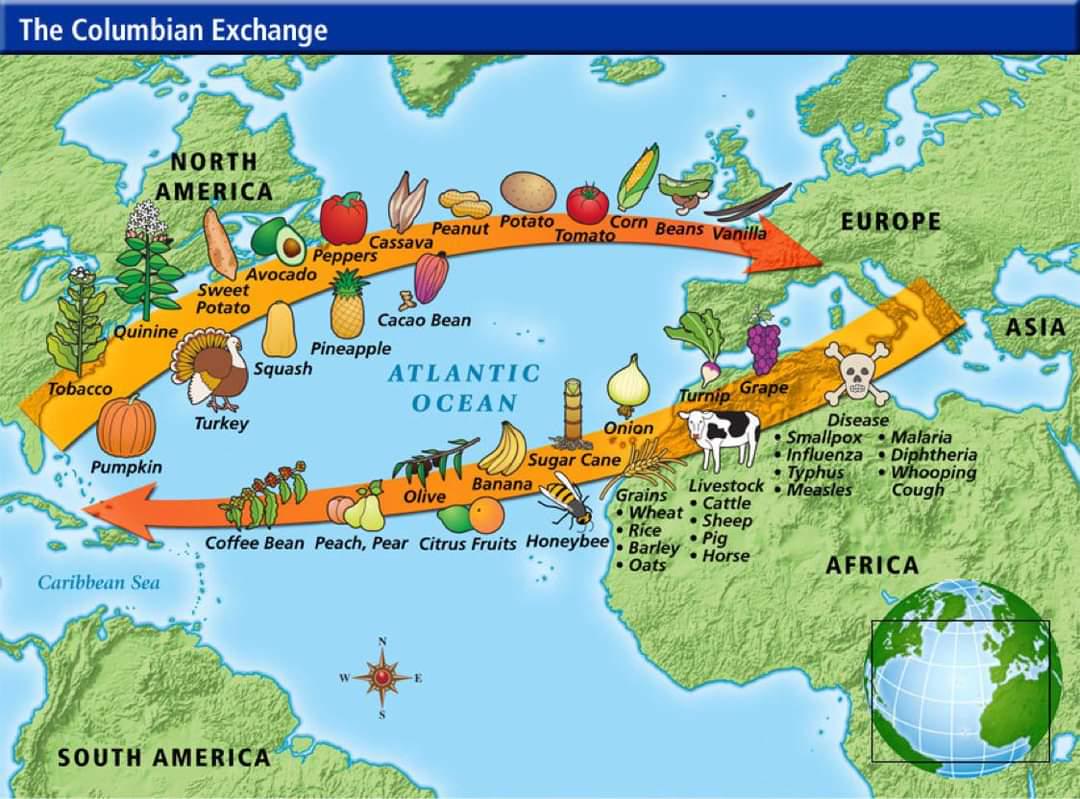Columbian exchange

The Columbian exchange, also known as the Columbian interchange, was the widespread transfer of plants, animals, precious metals, commodities, culture, human populations, technology, diseases, and ideas between the New World (the Americas) in the Western Hemisphere, and the Old World (Afro-Eurasia) in the Eastern Hemisphere, in the late 15th and following centuries. It is named after the Italian explorer Christopher Columbus and is related to the European colonization and global trade following his 1492 voyage. Some of the exchanges were purposeful while others were unintended. Communicable diseases of Old World origin resulted in an 80 to 95 percent reduction in the number of Indigenous peoples of the Americas from the 15th century onwards, most severely in the Caribbean. The cultures of both hemispheres were significantly impacted by the migration of people, both free and enslaved, from the Old World to the New. European colonists and African slaves replaced Indigenous populations across the Americas, to varying degrees. The number of Africans taken to the New World was far greater than the number of Europeans moving to the New World in the first three centuries after Columbus.
The new contacts among the global population resulted in the interchange of a wide variety of crops and livestock, which supported increases in food production and population in the Old World. American crops such as maize, potatoes, tomatoes, tobacco, cassava, sweet potatoes, and chili peppers became important crops around the world. Old World rice, wheat, sugar cane, and livestock, among other crops, became important in the New World. American-produced silver flooded the world and became the standard metal used in coinage, especially in Imperial China.
The term was first used in 1972 by the American historian and professor Alfred W. Crosby in his environmental history book The Columbian Exchange. It was rapidly adopted by other historians and journalists.
Wikipedia
This article contains information imported from the English Wikipedia. In most cases the page history will have details. If you need information on the importation and have difficulty obtaining it please contact the site administrators.
Wikipedia shows a strong woke bias. Text copied over from Wikipedia can be corrected and improved.